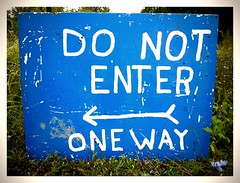There’s a very good post on Buzzfeed about the use of infographics (Diagrams displaying information in a useful and understandable way) to help rig Google results. It’s the new gray hat SEO manipulation technique.
Simple idea: Create an infographic. Make the content tabloid enough/interesting enough to get linked to and offer code for people to embed it on their site with of course a link back to the site with your golden key words.
Already we’re seeing website and blog owners being emailed and asked for links to these infographics and to use certain keywords with the links. Nefarious to say the least especially when there isn’t any thought on who might be interested in the content. “We thought you might like this health insurance graphic since you er blog about food and please link with the text: cheap health insurance Ireland”
It’s common for a client and an agency to want a quick win. Good traffic and lots of links. That’s the goal, right? Social media/online marketing is simple to set up, free to do and so people seem to think that there’ll be instant success as a result. The case studies we show and are shown make it seem that way too. Organic growth by creating content, interacting, getting feedback and moving on again is much more stable. But traditionally the marketing industry bought volume. Buy an ad on the Late Late, stick something in every paper and you’ll reach everyone with your very bland ad.
Quantity is still the catnip for many. That’s why you see so many company blogs mentioning celebrities and trying to shoehorn their offerings into some scandal. Good luck with aligning nipple slips into recruitment news lads. There was an old Irish Politics blog that started getting into mentioning all kinds of celebrity sex drivel. Traffic exploded but so did respect for the blog’s political analysis. This here blog for Mulley Comms gets 1/10th of the traffic as my personal blog and something blogged over there will do very well in Google but talking online marketing or online PR here means it won’t get first position on Google. That’s ok though as the blog here is new enough and still finding the way.
You see it too with Facebook campaigns that push for people to become fans. Win an iPad or iPhone for anyone that’s a fan of your Facebook Page. How many of your new Facebook fans genuinely care about what you do and how many clicked Like to enter the iPad draw?
Now counter that with what Sabrina Dent highlights for newsletter list building. She talks about Ciara Crossan going to Wedding Fairs. That’s where Ciara’s constituents are. Those who subscribe to her newsletter are the right demographic, not any old sod joining to get to the prize. Good leads at targeted events. There would be plenty of ways for Ciara to get 1000s of randomers on her mailing list but how many will take the content seriously then? A polluted database costs you more in the end.
So as clients, consultants and agencies should we keep pushing for the slow and more intelligent game instead of cheap tactics like link rigging and begging friends and strangers to Like client status updates? Should part of a company’s social media policy to ban staff from clicking on that Like button and leaving comments? The same way for competitions staff, their families and suppliers are banned from taking part? Should you train your own thoughts into thinking longterm?



